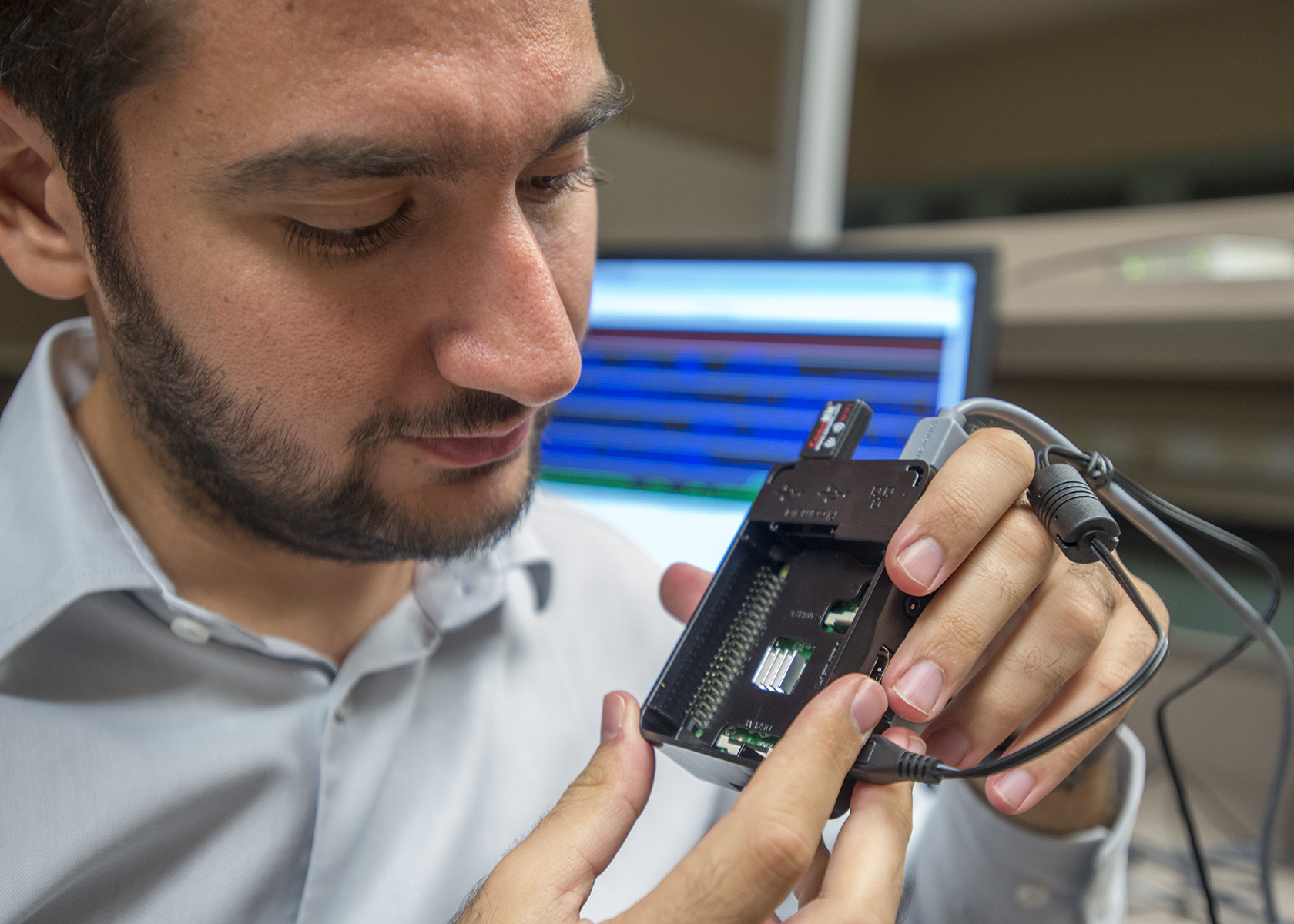March 12, 2016

NEW FACULTY MEMBER FOCUSES ON EMBEDDED SYSTEMS
Your “smartphone” might well be paving the way to make your “smart car” to become even smarter, says a new member of the faculty in the College of Engineering at SIU.
Iraklis Anagnostopoulos, assistant professor of electrical and computer engineering, arrived at SIU last fall with a vision of developing frameworks to use multiple computer systems and sensors – so-called “embedded systems” – to revolutionize the way people use and interact with their automobiles.
Cell phones once had a single use: Allowing people to communicate with ease from remote locations. That kind of phone, however, is almost non-existent these days, having given way a decade ago to the rising smartphone technology. The typical smartphone today has many functions and has replaced many other everyday devices, as well.
“Nowadays, mobile phones accommodate up to four cores, with high definition cameras and hardware accelerators,” Anagnostopoulos said. “And they are available to consumers at an affordable cost. Thus, the problem is how to efficiently utilize these devices.”
It’s a short leap from that concept to the ideas that drive much of Anagnostopoulos’ research.
“Computing systems have a tremendous impact on everyday life in all domains, from the Internet to consumer electronics, transportation to manufacturing, medicine, energy, and scientific computing. Also, the traditional perspective of embedded systems and devices is rapidly changing as increased functionality is being added by industry leaders,” he said. “My research focuses mostly on the field of modern embedded systems and many-core platforms. The goal is to find efficient ways to utilize and take advantage of all the underlying technology so as to offer innovative services.”
Embedded systems are having a major impact in the automotive industry and likely will become more and more powerful and improved in years to come. Anagnostopoulos is concentrating much of his research in that area for now, looking for ways to develop a framework for distributed multi-agent systems
“The developed framework will let us evaluate new techniques targeting specific requirements,” he said. “Also, it will let us integrate and test the concept of multi-agent systems in modern automotive environment making ‘smart’ cars smarter. (Also), it will give us the opportunity to suggest improvements and new solutions for self-management following the trends of a smart car.”
Anagnostopoulos earned his diploma in electrical and computer engineering in 2008 at the National Technical University of Athens, Greece. He earned his doctorate there in microprocessors and digital systems in 2014.
Anagnostopoulos said he likes to motivate students by holding conversations about cutting-edge issues in the industry, as well as ongoing research on embedded systems. With SIU being the home of the Center for Embedded Systems, a national consortium of electronics research funded by the National Science Foundation, Anagnostopoulos will be in a perfect position to lead SIU engineering students into the world of this exploding technology.
“The goal is to make them aware of the current technology status, while teaching them in a systematic and modular way of project solving,” he said “Frequent communication, big collaborative projects and brainstorming sessions are some of the methods I use.” He also strongly encourages students to submit the results of any research project to conferences, journals and scientific competitions.
Anagnostopoulos said he chose to come to SIU because it offers a strong environment for teaching and scientific research.
“The history of the university, the well-structured educational programs it offers, the published research works as well as its high standards were mainly the reasons for choosing SIU,” he said. “From the very first moment, I felt that SIU could help me boost my research and interact with students that are really interested in learning and developing new skills. Teaching at a SIU is a challenging and enjoyable task at the same time.”